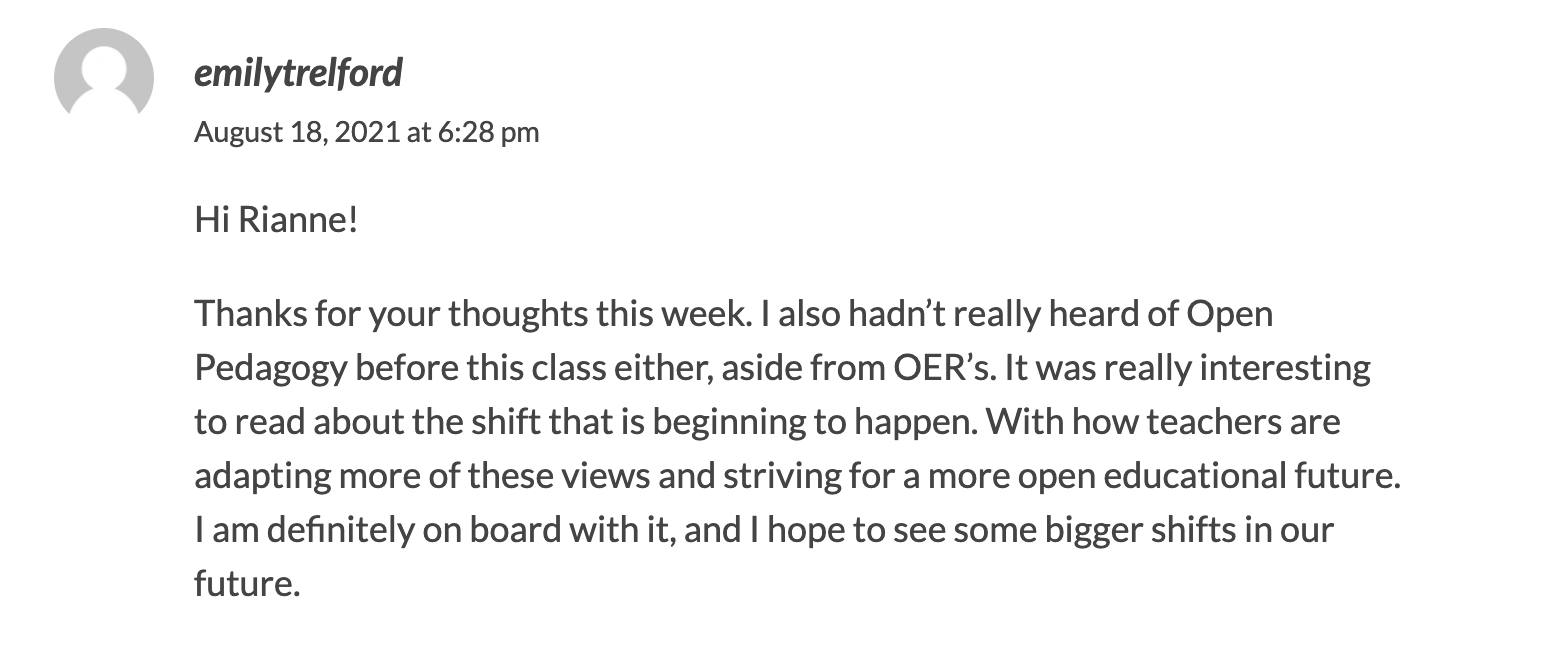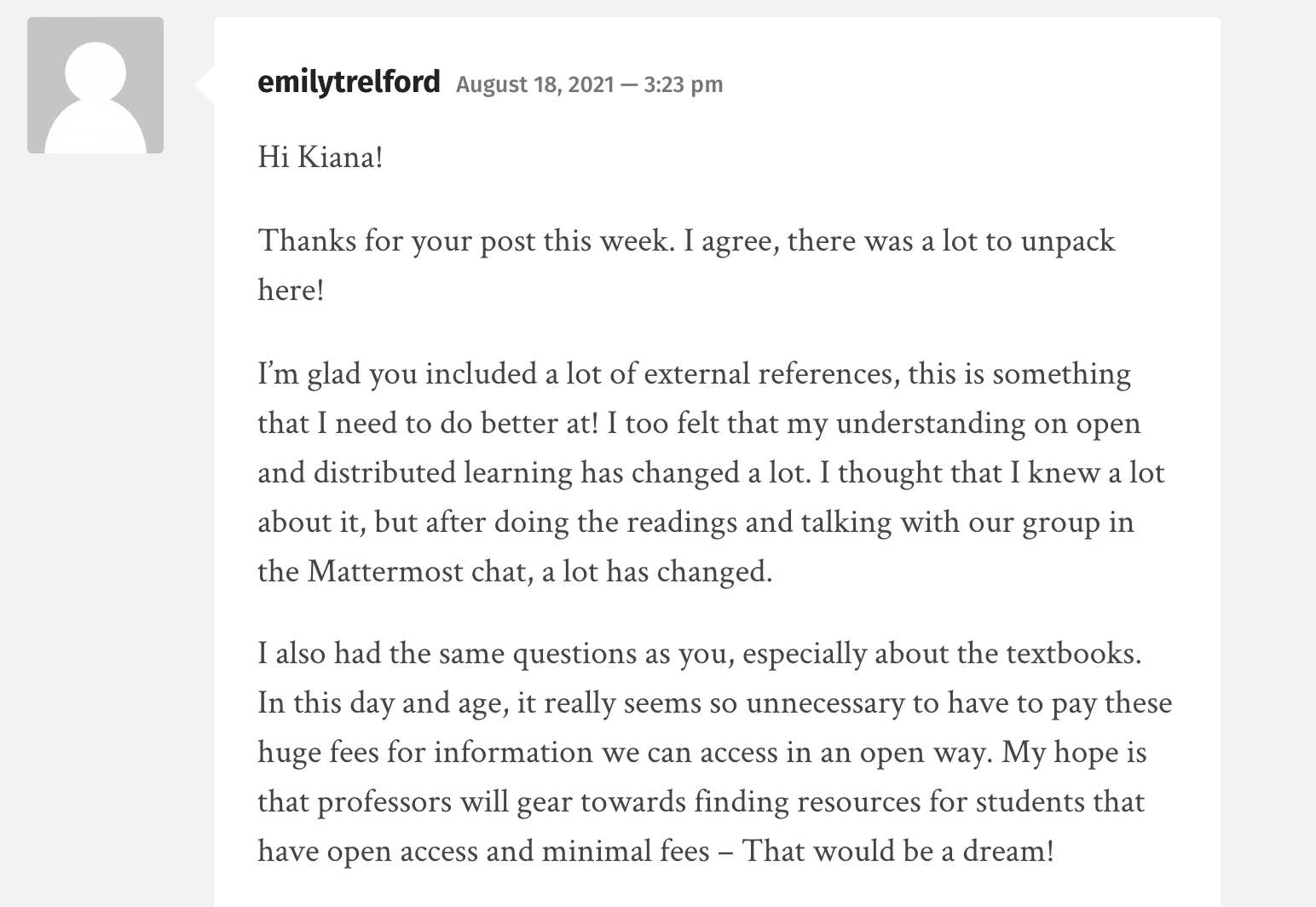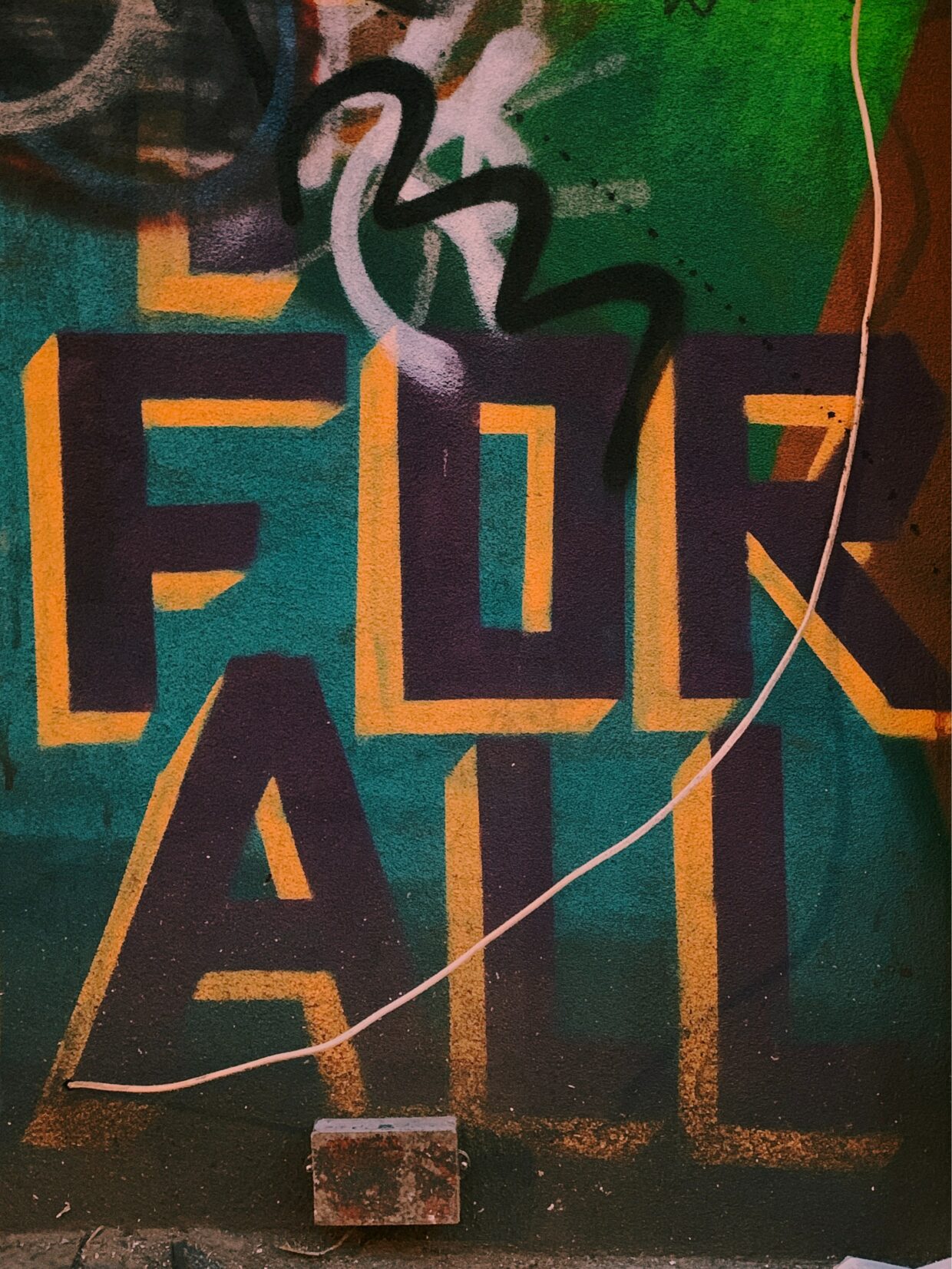Learning Outcome #4 – Examine and reflect upon the potential for equitable access for all learners in online and open learning contexts.
In my blog post #3 –
I examined the readings and discussed the topic of equity and access in today’s education. A quote that really stood out to me was this:
The United Nations Universal Declaration of Human Rights asserts that “higher education shall be equally accessible to all.” Yet, even in North America in 2017, “the likelihood of earning a college degree is tied to family income”
-Mays, 2017
This really struck me, because of how relatable it was. I am very fortunate that my parents started an education fund for my brother and I when we were born. I have friends who were not so lucky. Friends that have had to work themselves to the bone to try and pay for their tuition, and not only that, but the resources like textbooks, and the fees that come along with being enrolled in university.
This reading made me really open my eyes to the world of Open Educational Resources (OER’s), and just how crucial they are to the educational feature. The more educators we can get on board with making the access to course materials and resources equitable, the more successful students we will be able to have, across the globe. Imagine going through your four years at university and not having to pay the striking textbook fees, and being able to access these resources openly and at a much lower cost, even free! This sounds like a dream – but hopefully, not for long.
I was happy to engage with my peers on such an important topic. Below are some screenshots of my comments on my peers’ blogs on topic #3.
Rianne mentioned in her post that “If there was not open learning sources, the sources would be limited”. I thought this was interesting, and how true it is. If we are limited to one $150 textbook per class, our learning is limited. Here is a snippet from my comment on her post:

In Kianas topic #3 post, she gave us a great video resource on finding and using OER’s:
Here is my comment from her blog:

I felt like this topic was really eye-opening to me as well. I learned a lot of information through the readings that I didn’t previously know about, like how so many students can’t afford textbooks, and how online and open learning environments can help with this issue. It was crazy to me that equal access to education is one of our human rights, and yet it does not yet feel as though we are there yet. This matters to me as an educator, because of course I will want all my students to be able to have equal access to their learning experiences. I hope to do this through the use of OER’s, and making sure that my classroom is a place where students can learn together, not separated or limited by access.
Overall, there was a lot to unpack here. I actually discussed this topic with my mom, and how there are so many OER’s out there that so many educators don’t even know exist. She was just as shocked as I was to be learning about all of this, and how we spend so much on seemingly unnecessary resources. I’m very hopeful for the future, and I think we will begin to see more classes adapt an Open-Pedagogy.
Resources:
Mays, E. (Ed.). (2017). A guide to making open textbooks with students. Rebus Community. Retrieved from: https://press.rebus.community/makingopentextbookswithstudents/chapter/open-pedagogy/
